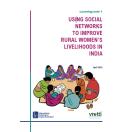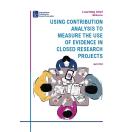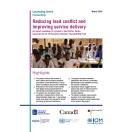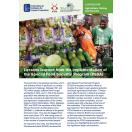Learning summary

Using social networks to improve rural women’s livelihoods in India
Learning note 1, 2023
The author of this note presents learning from India’s Deendayal Antyodaya Yojana National Rural Livelihoods Mission and illustrates the benefits of layering economic programs on social networks or groups, and how these vary according to the group’s composition and characteristics. Funded by Bill & Melinda Gates Foundation, the note also talks about policy recommendations for decision-makers to consider.




